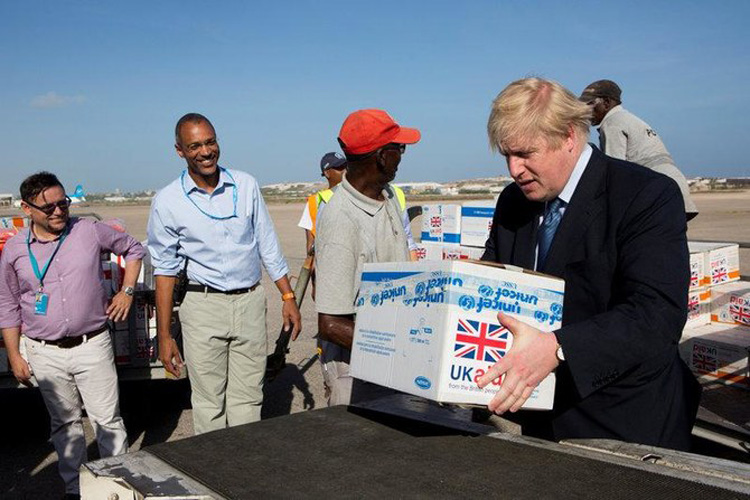LONDON: Britain’s plans to increase foreign aid spending back to pre-pandemic levels by 2024 have been welcomed by charities, but some have told Arab News that the delay could have serious humanitarian ramifications.
Chancellor Rishi Sunak announced on Wednesday that London would return to its legal obligation to spend 0.7 percent of gross domestic product — around $5 billion in real terms — on foreign aid by 2024, up from the current 0.5 percent implemented during the COVID-19 pandemic.
“Our improving fiscal situation means we will meet our obligations to the worlds’ poorest,” Sunak said while delivering the Treasury’s annual budget announcement. “Today’s forecast shows that we are in fact scheduled to return to 0.7 percent in 2024 and 2025.”
The cuts were forced through Parliament after much resistance from cross-bench politicians, who warned that massive reductions to the UK’s aid spending would have dire real-world consequences for countless people the world over, including many in the Middle East.
Some charities and humanitarian organizations have welcomed Sunak’s pledge to increase foreign aid spending back to 0.7 percent.
“We welcome the projection for UK aid funding to return to 0.7 percent in 2024/25. In the meantime, UK aid remains a critical lifeline for millions of people in need of urgent assistance, with humanitarian needs soaring, due to a mixture of COVID-19, climate and conflict,” Richard Blewitt, an executive director at the British Red Cross, told Arab News.
“We call on the government to ensure aid continues to be allocated on the basis of need. UK aid needs to be prioritized for the most vulnerable communities in the world where suffering is reaching unprecedented levels.”
But others have warned that the three-year delay could have serious consequences for vulnerable Syrians, Yemenis and others, as well as a negative impact on the UK’s security and the country’s post-Brexit ambition to become “Global Britain.”
Charles Lawley, head of communications and advocacy at Syria Relief, told Arab News that “the most optimistic scenario is that there is only a minor increase in suffering, and the NGO community and other donors are able to fill the gaps left by such a huge aid budget reduction” until the aid is increased later in the decade.
“However, it is likely that the cuts will mean a rise in poverty and a rise in negative coping mechanisms such as selling assets, child labor and early marriage.”
His organization has been providing life-saving aid and support in Syria throughout the country’s brutal war.
Because of the aid cuts, “the most vulnerable in Syrian society will be exposed to even greater risk,” Lawley said.
“A situation that creates desperation usually results in a poorer security situation. People could very well look for income through groups that do pose a threat to UK interests,” he added.
“These are not the actions of the ‘soft-power superpower’ that ‘Global Britain’ was meant to be. This is the action of a short-sighted little England.”




